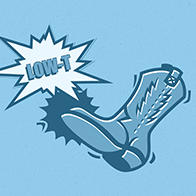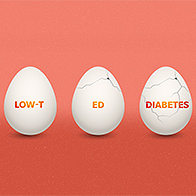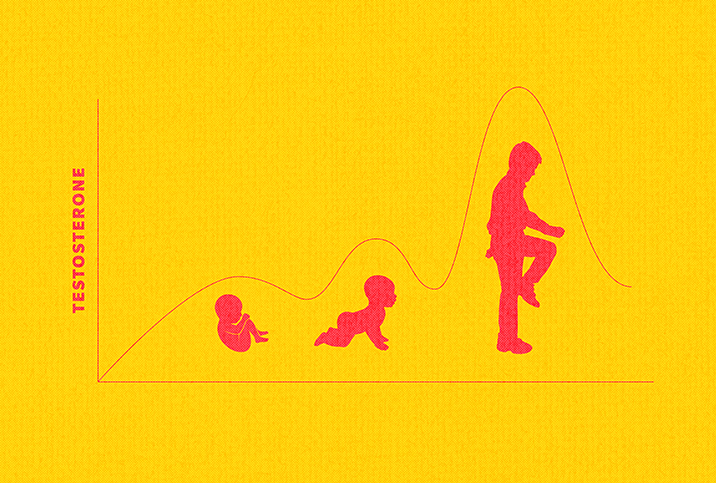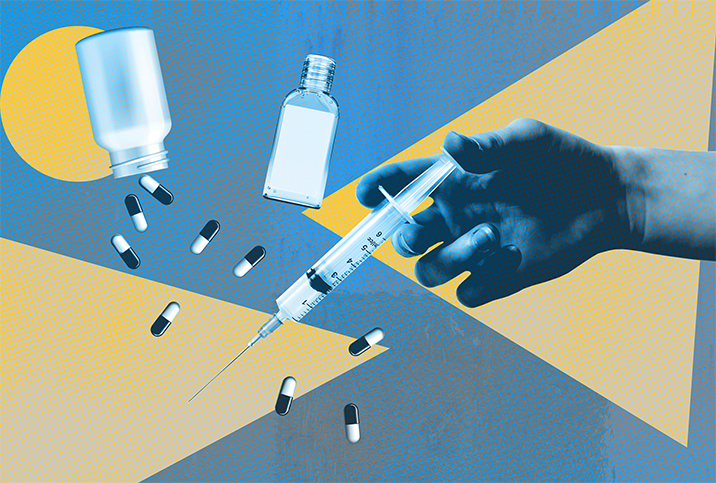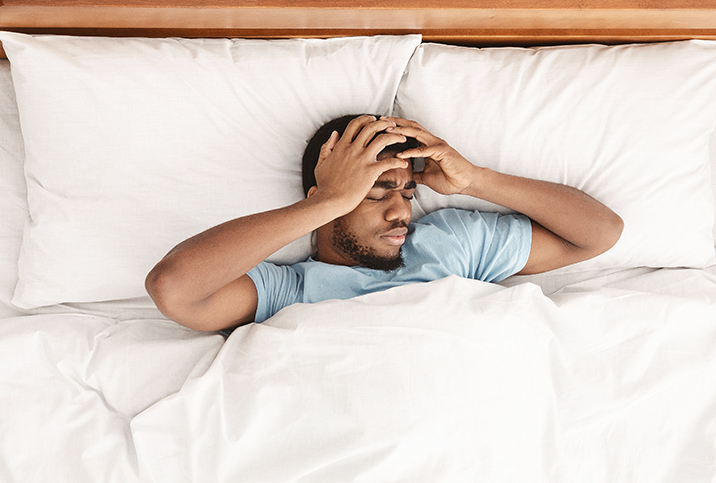What Can Cause Low Testosterone Levels?

Discussions around low testosterone often focus on the symptoms of low-T.
You'll hear a ton about what you're missing out on without having your testosterone at optimal levels. The conversation then usually immediately shifts toward what testosterone replacement therapy (TRT) may be able to do for you: better energy, improved mood and sex drive, better lean muscle-to-fat ratio, and better erectile function.
Our modern tendency is to look for quick-fix pharmacological solutions to everything. It's often useful, though, to look at the underlying causes of a medical issue rather than to be in a big rush to alleviate the symptoms in the quickest, easiest way possible.
That's especially true when it comes to messing with the delicate natural balance of hormones your body produces, which requires careful calibration. It's not like taking an antibiotic for a bacterial infection.
Coming at testosterone with a sledgehammer of clumsy, inexpert or poorly thought-out "treatment" can be disastrous—especially if you don't try anything else first.
That's why most reputable men's health specialists will begin any conversation about low testosterone symptoms with a thorough assessment of the patient's history and lifestyle. It's important to understand that we have a measure of control over our own testosterone levels.
We'll look at some of the causes of low testosterone, including how aging may or may not affect testosterone production, and delve into a set of possibly testosterone-related behaviors that have been dubbed "irritable male syndrome."
What can cause low testosterone levels?
Some people may realize, on an abstract level, how unhealthy life in modern Western society can be. When you really begin to grapple with the specifics, it's kind of amazing so many of us continue to insist on living this way.
The food we eat, the level of exercise many of us choose, the type and amount of substances we take, the very air we breathe—all of these things conspire to make us unhealthy across a variety of bodily systems. When you look at a typical modern American's lifestyle through the lens of testosterone production, it really snaps into focus.
Factors such as obesity, diabetes, sleep apnea, and drugs and alcohol are often causes of low-T.
Obesity
As of 2017, more than 42 percent of Americans were obese, and 30.7 percent were overweight, according to the National Institutes of Health (NIH). About 1 in 11 adults were severely obese, meaning they had a body mass index (BMI) of 40 or more.
Multiple studies show a strong link between obesity and low-T. The connection is clear. In one study, a man who was morbidly obese and hypogonadal (having low-T) underwent gastric bypass surgery. Researchers suggested his testosterone returned to normal levels so completely that he was taken off supplemental testosterone.
This study—yes, the sample size was just one—dovetails with a 2019 review of obesity and low-T. That research suggested that not only does obesity lead to low-T, but the opposite is also true: Low-T can cause increased fat accumulation.
Diabetes
Diabetes is closely linked to obesity, and the two of them together comprise a warning sign of low-T. A certain portion of men with erectile dysfunction (ED) can be expected to have hypogonadism, but that number increases if those men are obese or diabetic.
Sleep apnea
Sleep apnea becomes more common as men reach middle age, and this may exacerbate the natural drop in testosterone production that occurs with age. Simultaneously treating obstructive sleep apnea and low-T can help, according to the NIH.
Drugs and alcohol
Alcohol abuse and chronic drug use can have a major impact on testosterone production, especially when it comes to opioids.
"The big one for medication is going to be opioids," said Amy Pearlman, M.D., a men's health specialist and co-founder of Prime Institute in Fort Lauderdale, Florida. "Opioids that people use for pain can drastically reduce testosterone levels. I don't know if taking them just for a couple of days can impact testosterone, but I do know that patients who are on them chronically have very low levels, and that's supported by the research."
Does age affect testosterone production?
Men's testosterone production begins to decline by about 1 percent per year starting around age 30. That may sound like a damning figure, but there's more to unpack here before you rush off to the clinic the day after you turn 30.
"Yeah, testosterone goes down as people get older," Pearlman said. "But that doesn't mean it's going to be low—if they keep themselves healthy. Some of my healthiest patients that come in are in their 80s and 90s and are hoping they have low-T because they have some fatigue or they're not as sharp as they were before.
Many of them, she said, are hoping their testosterone is low so she can put them on testosterone and they can live their best lives.
"But I find that the people who are moving and grooving and staying active and treating their bodies well, just because they're 80 or 90 years old doesn't mean they're going to have low testosterone," Pearlman added.
Another important point is that while that 1 percent drop in testosterone per year may sound like a slow death sentence to your libido, it needs to be viewed as a big picture.
"One percent is not that much," Pearlman said. "So if someone has a total testosterone of 600 nanograms per deciliter (ng/dL), then 1 percent is going to be 6 nanograms per deciliter per year."
What is irritable male syndrome?
If you've ever had a laugh at the stereotype of the "grumpy old man," it's possible you were mocking someone with a genuine medical condition.
Researchers are connecting the dots between the proven scientific phenomenon of lower testosterone production in older men and the anecdotal evidence that some older men become more irritable and depressed and have lower self-confidence and energy.
They're calling it "irritable male syndrome," but it is strongly linked to what's clinically called "andropause," or sometimes "male menopause."
We should probably take that clickbait-worthy term with a grain of salt. But what is indisputable is that the age-related, normal reduction in androgen production—androgens are "male" hormones like testosterone—is linked to moodiness and the other symptoms discussed above.
One study on irritable male syndrome looked at the end of mating season for a species of ram called the Soay ram. The researchers found that the drop in testosterone production at the end of the mating season resulted in the animals appearing to be more fearful and agitated.
What was also striking was that they fought more, resulting in more frequent physical wounding.
Can you fix low-T?
The bottom line is that testosterone production is often something you can control, to some degree.
You can't stop aging, but you can get more active, eat healthier, cut drug and alcohol use, and drop excess weight. Doing those simple things can help you to end up "moving and grooving" well into old age like one of Pearlman's 80- or 90-year-old active, healthy patients who have healthy testosterone levels.
Eating better and exercising more may not be a quick fix, but it's a sustainable, healthy way to start your journey to better testosterone levels and overall better well-being.







